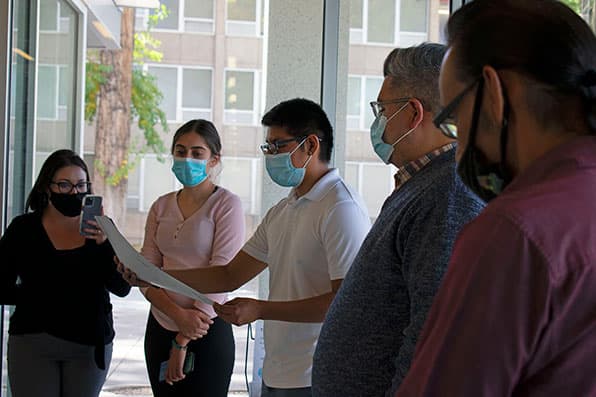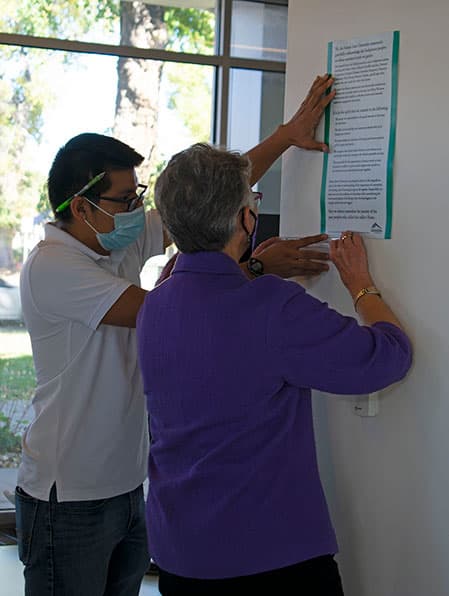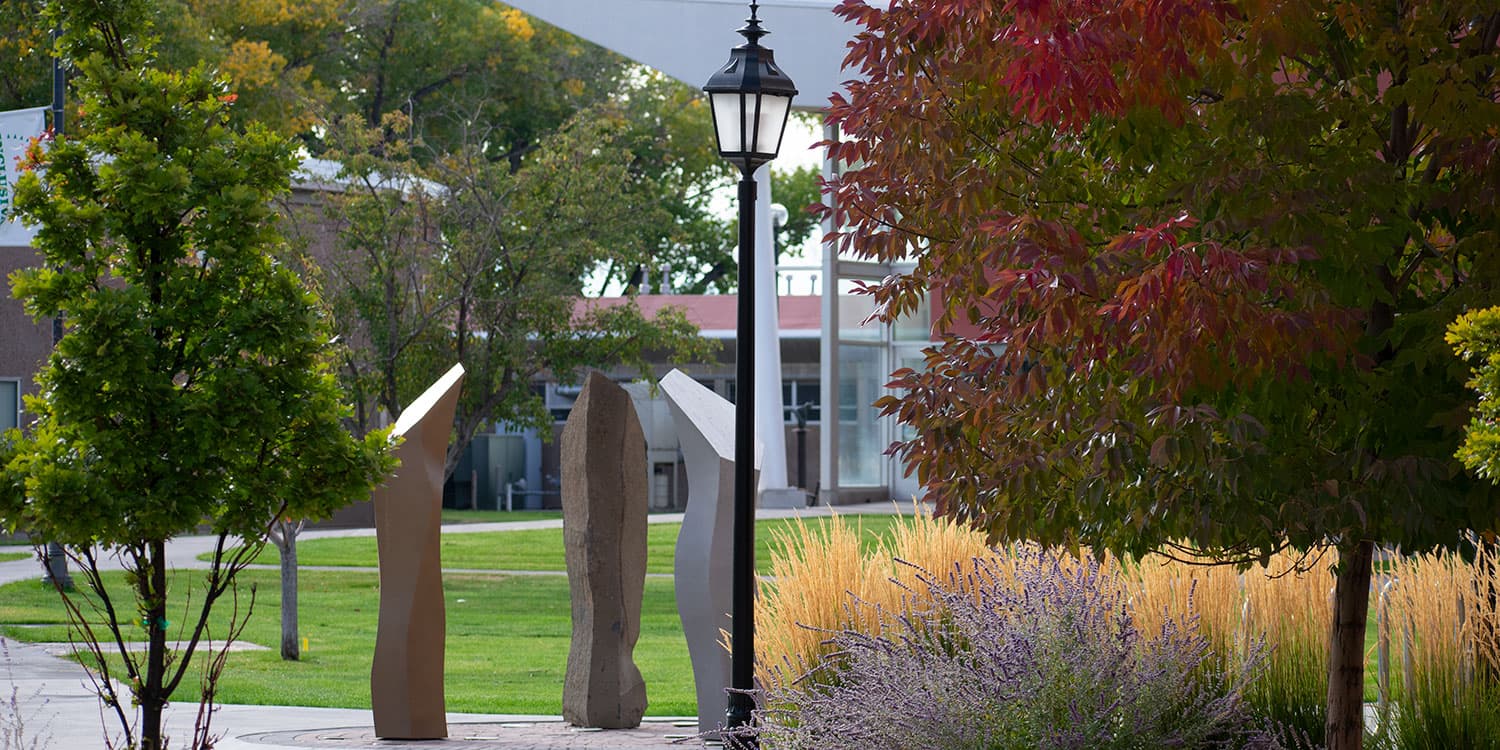Adams State University adopted a Land Acknowledgement Statement last spring and has posted the statement in academic buildings across campus.
The statement helps the Adams State community recognize the privilege it has to be part of the San Luis Valley and will help the institution continue to remember and to reflect on the rich history of the land on which the university resides.
This statement was developed in collaboration with stakeholders from across campus including the President’s Advisory Group on Equity (PAGE), the Community for Inclusion, Equity, Leadership and Opportunity (CIELO), Associated Students and Faculty (AS&F), and many Adams State faculty and staff. Matthew Valverde, D.M.A., associate professor of music and former chair of PAGE, and AS&F President Lathen Tsalate, Class of 2022, were key participants in the creation of the Land Acknowledgement Statement and its accompanying policy.

Tsalate read the Land Acknowledgement Statement at a brief ceremony on October 11, when Adams State President Cheryl D. Lovell posted the Statement at the west entrance to McDaniel Hall. “October 11th is the day to commemorate the pain and resilience of the Indigenous peoples’, the first people to live in the Americas before Christopher Columbus journeyed to this land. What better day to have this brief ceremony to honor the land than October 11th? The Land Acknowledgement Statement is more than just words to honor the land that Adams State University resides on. For years, the history of the Indigenous peoples who once lived in the San Luis Valley pre-settlement in the 1800s was almost forgotten. This statement is a milestone that will lead us into the future of becoming a better institution for our students. This statement along with other milestones like the Senate Bill 21-029, won’t alleviate or erase the past but they will create a new future and past to remember.”
The Land Acknowledgement Statement has been translated into Spanish.
Valverde said the Formal Land Acknowledgement Statement invites us to come into any space on campus with an open mind and a willingness to learn about the important history of this land and its people. “It should always remain a living document and cause us to ask questions about how we came to this place and how to honor the land and its natural resources,” Valverde adds.

The Adams State Board of Trustees approved the Formal Land Acknowledgement Statement policy on April 14, 2021. The proclamation of the Formal Land Acknowledgement Statement and the adoption of this policy is part of an ongoing effort to promote inclusion, equity, cultural responsiveness, diversity and community engagement.
This required, shortened version of the Formal Land Acknowledgement Statement will be delivered at the beginning of public events held on campus:
We, the Adams State University community, gratefully acknowledge the Indigenous peoples on whose ancestral lands we gather. This beautiful San Luis Valley is sacred to many Indigenous nations, including the Utes, Jicarilla Apaches, Comanches, Kiowas, Arapahoe, Cheyenne, Navajo Nation, Pueblos, and all other First peoples who once made this valley their home. We honor the diverse communities that historically dwelled here and those who currently reside in the San Luis Valley. We know that honoring these lands is a reflective process that demands continued engagement and action. May we always remember the journey of the past peoples who called this valley: “Home.”
Español: Nosotros, la comunidad de Adams State University, reconocemos con gratitud a los pueblos indígenas en cuyas tierras ancestrales nos juntamos. Este hermoso Valle de San Luis es sagrado para diversas naciones indígenas, incluidos los Nuchu (Yutas), Pueblos, Abáachi (Apaches Jicarilla), Numunu (Comanches), Ka’igwu (Kíowas), Inuna-Ina (Arapajó), Tsistsistas (Cheyenes), Diné (Navajos) y todos los otros pueblos originarios que creaban un hogar en este valle. Honramos a la diversidad de comunidades que históricamente moraban aquí, y a aquellos que hoy en día viven en el Valle de San Luis. Sabemos que honrar a las tierras es un proceso reflexivo que demanda un continuo compromiso y acción. Sea que recordemos siempre el viaje de los antepasados que llamaban a este valle: “Hogar.”.
Visit Land Acknowledgement Statement for more information.



